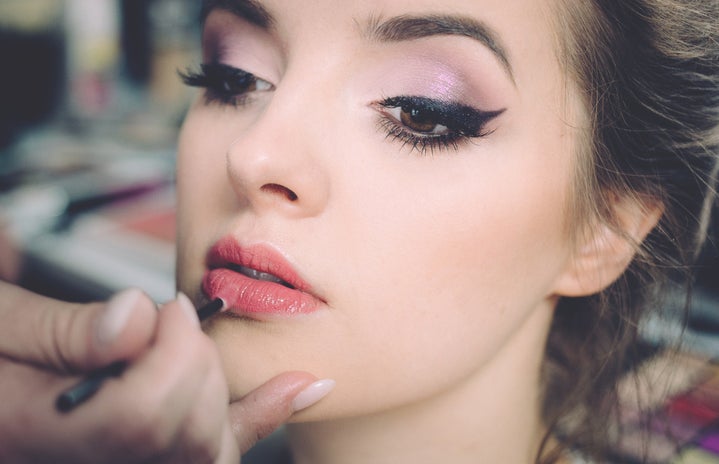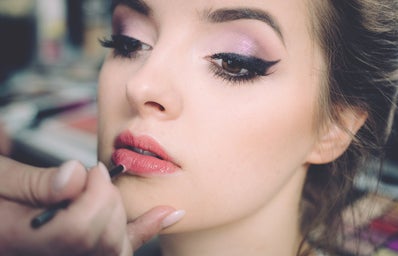The multi-faceted complexities of being a woman are constantly dissected and assessed. A critique seems to be readily available for the appearance, speech, and actions of a woman. The intentions might be benign or malicious but it all contributes to the concept of shaming. It is common for women to wear makeup at some point in their lives. Every-day wear, special occasions and high-fashion are sectors of the makeup industry. Makeup and everything related to it has been a common bond that is pleasurable for many women.
In recent years, it seems that polarizing opinion of makeup has grown and also contradicted itself. Youtube makeup gurus are revered for their skills but there is also an audience that screams deception, witchcraft and wizardry at the transformative results of makeup. “Eyebrows on fleek” are lauded and Nike eyebrows are put in check. Someone with naturally thin eyebrows might receive praise for not wearing makeup but might also feel pressures to shape, fill and highlight her brow.
Women tend to feel empowered when they have makeup on, so why is there the association that a girl wears makeup because she has low self-esteem or because she is superficial? That is a crippling misconception. The reason why a woman decides to wear makeup is her choice. Painting your face is artistic expression. Adding a wing tip to the upper lid lining of your eye is only an asset enhancement. People are quick to say that you look different, tired or sick when you are not wearing makeup. On a deeper level, makeup can be a solution for health changes that women encounter.
Our skin doesn’t remain the same overtime. Discoloration, acne, oiliness, dryness and scarring can cause long-lasting damage to the skin. An even full-coverage foundation is used to restore the skin quality that a women had prior to these bodily changes. Hair is an element of beauty that may be sparse or plentiful on the face, depending on who you are. The length of eyelashes and fullness of eyebrows are desired looks that makeup can achieve. Trichotillomania is a body focused repetitive behavior (BFRB). It is the impulse to pull out one’s own hair. Someone dealing with this might not have all of their eyebrow or eyelash hairs. Cancer patients also lose their hair during chemotherapy. Mascaras, brow pencils and false eyelashes serve as a solution for hair loss. Eyebrow and eyelash hair add dimension to the structure of the face. If a women feels like her true self with makeup, why question, scrutinize or critique her?
The women of The Real talk show constantly get comments questioning their authenticity as “real women” because they wear weaves or makeup. Why is makeup associated with “being fake” as a person? Why is it the distinguishing factor of what defines a natural woman? You can style yourself however you like and still be the individual that you are.
Colbie Caillat has a beautifully touching song called Try about women and beauty. The music video shows women wiping off their makeup. The central lyric is, “You don’t have to try so hard.” The song is very beautiful, but it is also not a negative thing to pamper yourself or wear makeup. It is truly up to your personal comfort level and preference with makeup. Often times, when you do your makeup exceptionally well you get the reaction of, “Who are you trying to impress?” No one but myself!
Makeup is a form of expression. You can convey whatever message you like. It doesn’t matter if you paint your face with nude hues or with colorful creations.
For more information about makeup shaming, check out this blog.

